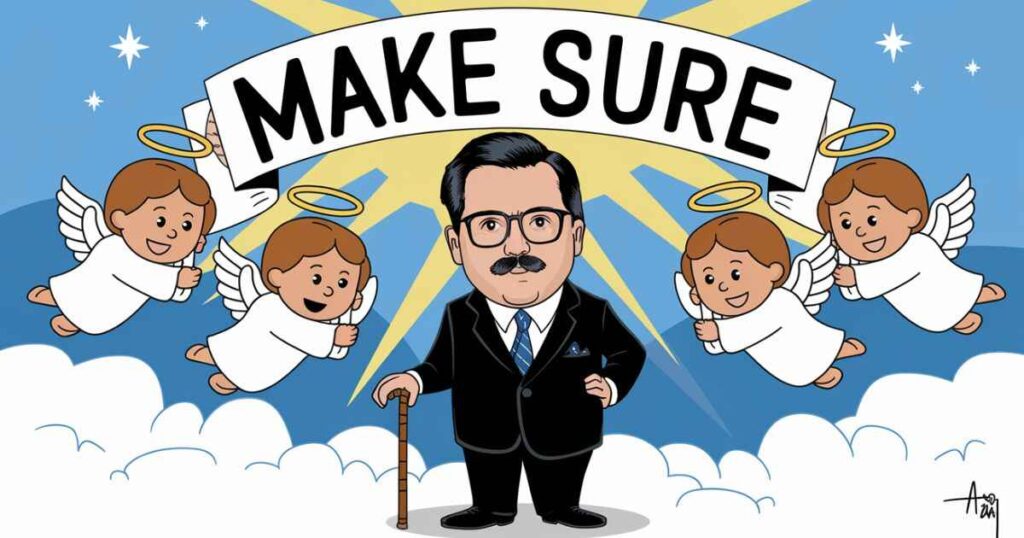Ever caught yourself saying “make sure” one too many times? You’re not alone. Whether you’re drafting an email, giving instructions, or just chatting with friends, variety in your language can make a world of difference. Let’s dive into 15 alternative ways to say “make sure” that’ll spice up your vocabulary and sharpen your communication skills.
Alternative Ways to Say “Make Sure”

Before we jump into our list, let’s consider why we might want to switch things up. Using different phrases not only makes your speech more interesting but can also add nuance and precision to your meaning. Plus, it shows off your language chops!
Ensure
Ensure is perhaps the closest synonym to “make sure.” It carries a sense of guaranteeing an outcome.
“Please ensure all the lights are off before leaving the office.”
This word works great in professional settings, giving your requests a touch of formality without sounding stuffy.
Verify
When you need to verify something, you check its accuracy or truthfulness. It’s perfect for situations where facts matter.
“Can you verify the customer’s shipping address before sending out the package?”
Pro tip: Use “verify” when dealing with data, documents, or any information that needs to be confirmed as correct.
Confirm
Confirmation is all about making sure something is definite or approved. It’s a versatile word that fits in many contexts.
“Let’s confirm the meeting time with everyone on the team.”
This word works wonders in casual and formal situations, making it a go-to alternative.
Double-check
Sometimes, you need to emphasize the importance of checking something twice. That’s where double-checking comes in handy.
“Double-check your answers before submitting the test.”
It’s a friendly reminder that adds a layer of carefulness to your request.
Assure
When you want to ensure something, you eliminate doubt and provide confidence.
“Can you assure me that the project will be completed by Friday?”
This word carries a weight of responsibility, perfect for situations where trust is key.
Validate
Validation is about proving something is correct or confirming its validity. It’s especially useful in technical or scientific contexts.
“We need to validate these results before publishing the research paper.”
Use this when you’re dealing with processes, methods, or findings that need to be proven correct.
Affirm
To affirm is to state something positively or with confidence. It’s a powerful way to reinforce a point.
“Please affirm that you understand the company’s new policy.”
This word adds a layer of seriousness and commitment to your communication.
Authenticate
When you need to prove something is genuine, authenticate is your go-to word.
“We must authenticate all signatures on the contract before proceeding.”
It’s particularly useful in legal, financial, or security-related contexts.
Cement
To cement something is to make it firm or secure. It’s a metaphorical way of saying “make sure” that adds some flair to your language. 15 Ways To Say “Make Sure”.
“Let’s cement the details of our agreement before shaking hands.”
This word paints a vivid picture of solidifying plans or decisions.
Ascertain
Ascertain means to find out or make certain of something. It’s perfect for situations where you need to gather information. 15 Ways To Say “Make Sure”.
“Could you ascertain whether the client is available for a meeting next week?”
Use this when you want to emphasize the process of discovering or confirming facts.
Secure
To secure something is to make it certain or guarantee it. It’s a versatile word that can add a sense of finality to your requests. 15 Ways To Say “Make Sure”.
“Please secure a reservation at the restaurant for Friday night.”
This word works well when you’re dealing with arrangements or commitments.
Check and recheck

Sometimes, one check isn’t enough. Check and recheck emphasize the importance of thoroughness.
“Check and recheck your calculations before submitting the budget proposal.”
It’s a clear way to stress the need for accuracy and attention to detail.
Guarantee
When you want to guarantee something, you’re promising it will happen or be true. It’s a strong word that shows confidence.
“Can you guarantee that the package will arrive by tomorrow?”
Use this when you need to emphasize a high level of certainty or commitment.
Determine
To determine is to establish or ascertain something conclusively. It’s about reaching a definite conclusion.
“We need to determine the root cause of the problem before implementing a solution.”
This word is great for situations where you need to find out or decide something with certainty.
Establish
Establish means to set up or prove something beyond doubt. It’s about creating a firm foundation.
“Let’s establish clear guidelines for the new project.”
Use this when you’re setting up systems, rules, or facts that need to be clearly defined.
Conclusion
Expanding your vocabulary with these alternatives to “make sure” can significantly enhance your communication. By choosing the right word for the context, you’ll convey your message more precisely and keep your language fresh and engaging. 15 Ways To Say “Make Sure”.
FAQs
What’s a better way to say, make sure?
There’s no one-size-fits-all answer, but some strong contenders include “ensure,” “verify,” and “confirm.” The best choice depends on your specific context and the level of formality you’re aiming for.
What can I say instead of please make sure?
Try phrases like “Please ensure,” “Kindly verify,” or “I’d appreciate it if you could confirm.” These alternatives maintain politeness while adding variety to your language.
What are other ways to say sure?
While “sure” isn’t the same as “make sure,” some alternatives include “certainly,” “absolutely,” “definitely,” and “without a doubt.”
What can I use instead of, for sure?
You might say “certainly,” “undoubtedly,” “absolutely,” or “without question.” Each of these phrases conveys a strong sense of certainty, similar to “for sure.”











